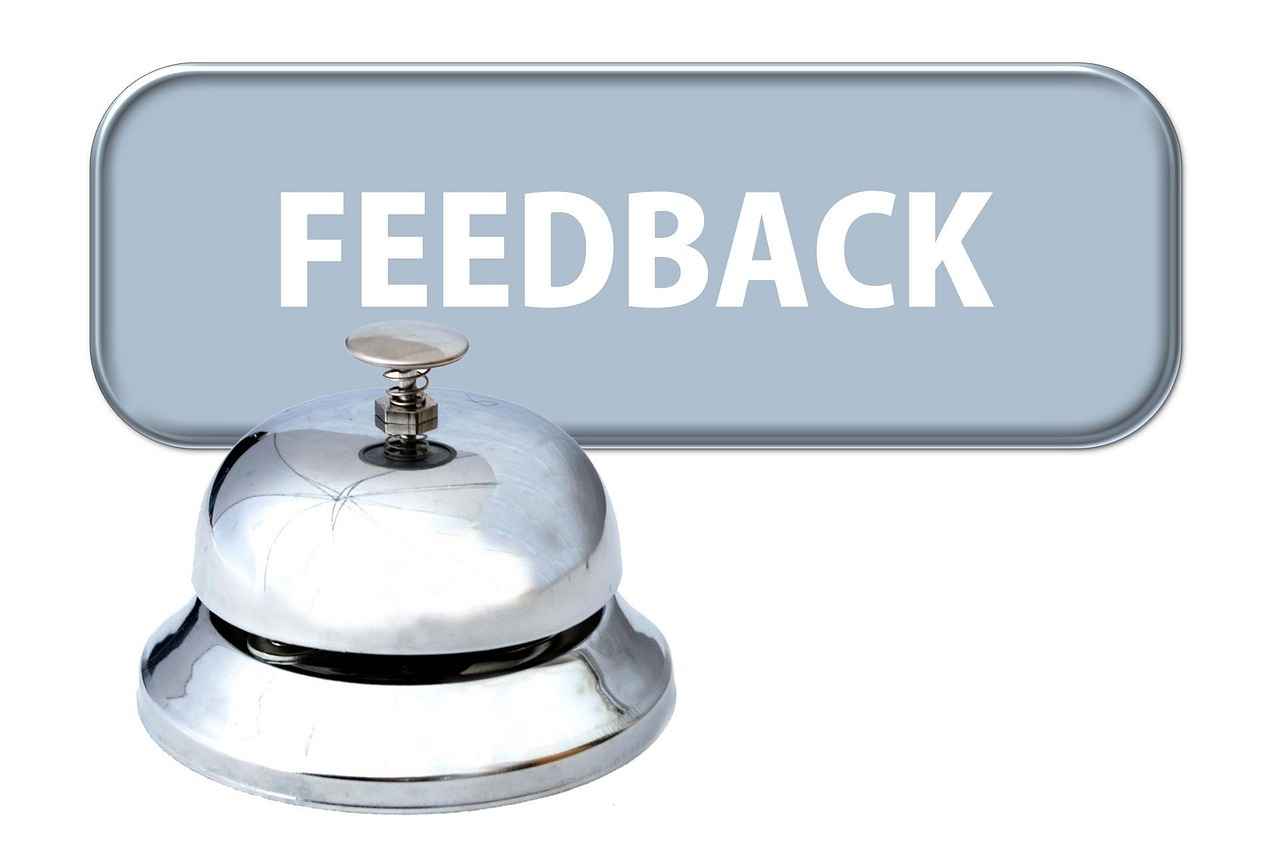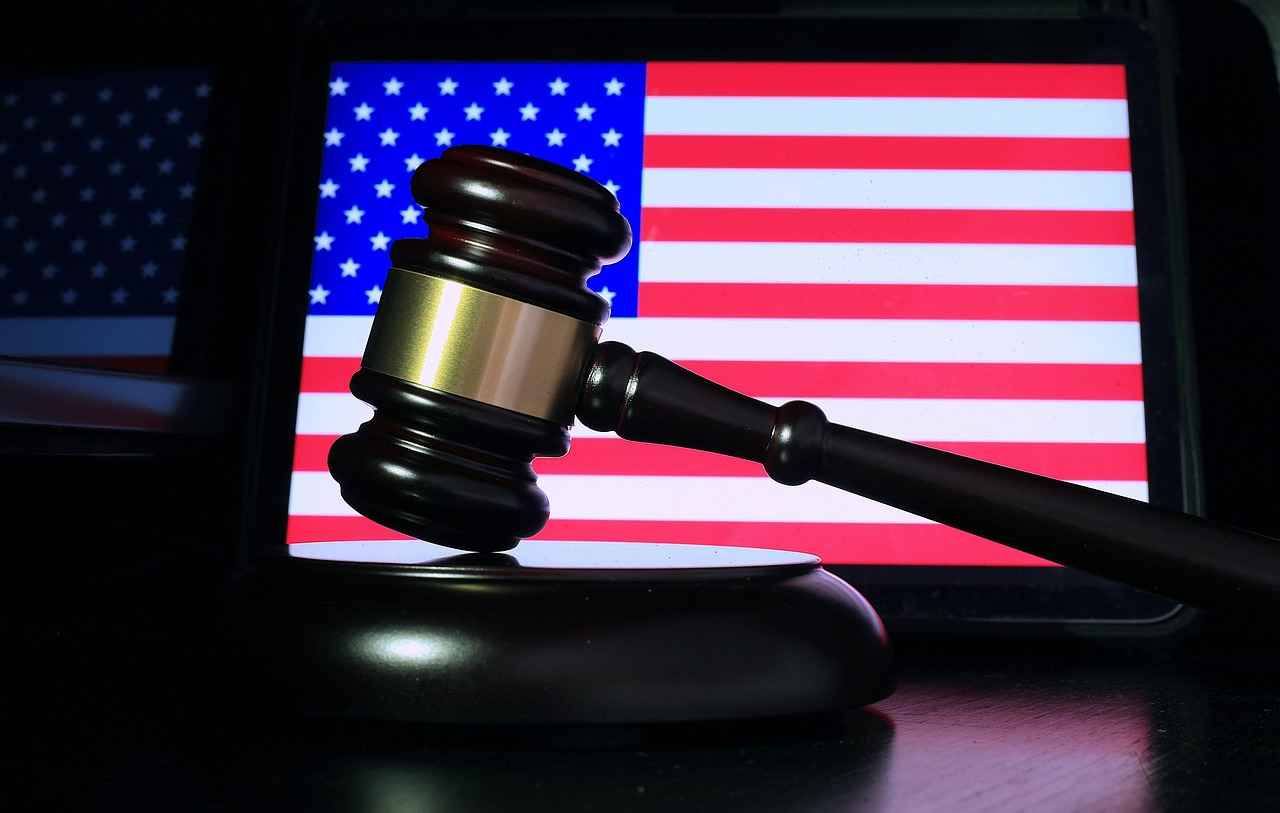This article provides a comprehensive guide to identifying qualified legal professionals in Virginia Beach, Virginia, covering various legal cases and offering practical tips for finding the right attorney.
In Virginia Beach, individuals may encounter various legal issues, from personal injury to family law. Understanding these cases helps in seeking the right legal representation tailored to specific needs. Each type of legal case requires a different set of skills and expertise, making it essential to find an attorney who specializes in the relevant area.
Personal injury cases arise from accidents or negligence. Knowing how to find a specialized personal injury lawyer can significantly impact the outcome of your claim. Look for attorneys with a proven track record in personal injury cases, including successful settlements and verdicts. Check their experience and client reviews for insights into their capabilities.
- Research their history of settlements and verdicts.
- Read client testimonials and reviews.
- Verify their experience with similar cases.
- Beware of guarantees on outcomes.
- Look for transparency regarding fees.
- Avoid attorneys who lack clear communication.
Medical malpractice involves negligence by healthcare professionals. Finding an attorney with expertise in this area is crucial for navigating complex medical legalities. Seek lawyers with a background in healthcare law and a history of handling medical malpractice cases. Look for their credentials and any affiliations with legal organizations.
- Check their medical malpractice case history.
- Review their educational background and credentials.
- Look for memberships in legal associations.
- Avoid lawyers who lack experience in medical cases.
- Beware of those who do not offer initial consultations.
Breach of contract cases can arise in various contexts, including business and personal agreements. Understanding how to find a commercial litigation attorney is essential. Select attorneys with experience in contract law and a successful history of negotiating settlements or litigating breaches.
- Verify their understanding of your specific industry.
- Check their negotiation and litigation success rates.
- Be wary of unclear fee structures.
- Avoid lawyers who seem unfamiliar with contract specifics.
Property disputes can involve various issues, from boundary disputes to landlord-tenant conflicts. Finding an attorney experienced in real estate law is vital. Look for lawyers specializing in real estate law with a history of resolving property disputes.
- Check for familiarity with local zoning laws.
- Look for a history of successful case resolutions.
- Avoid attorneys lacking local experience.
- Seek references from previous clients.
Employment disputes can arise from wrongful termination, discrimination, or wage issues. Finding a qualified employment attorney is crucial for safeguarding your rights. Seek attorneys with experience in employment law and a successful history of handling similar cases.
- Look for involvement in relevant legal organizations.
- Verify their track record in employment law cases.
- Be cautious of those lacking specialization in employment law.
- Avoid lawyers who do not offer free consultations.
Family law encompasses divorce, child custody, and support issues. Finding a compassionate and skilled family law attorney is essential for navigating these sensitive matters. Look for attorneys who specialize in family law and have a track record of successful outcomes in similar cases.
- Consider personal referrals for recommendations.
- Check their experience with cases similar to yours.
- Avoid lawyers more focused on winning than your best interests.
- Look for attorneys who prioritize communication and empathy.
Criminal cases, including DUI/DWI and theft, require skilled legal representation. Finding a competent criminal defense attorney is critical for protecting your rights. Seek attorneys with a strong background in criminal law and a history of defending cases similar to yours.
- Check their courtroom experience.
- Look for a history of successful defenses.
- Be wary of lawyers lacking a clear defense strategy.
- Avoid those not transparent about their fees.
Class action lawsuits allow groups to collectively seek justice for similar grievances. Finding an attorney experienced in these complex cases is essential. Look for lawyers with a proven track record in class action lawsuits and a comprehensive understanding of the legal processes involved.
- Verify their experience with similar cases.
- Check their understanding of legal procedures.
- Avoid attorneys lacking transparency in fee structures.
- Be cautious of those unfamiliar with class action procedures.
Intellectual property disputes can involve patents, trademarks, and copyrights. Finding an attorney specializing in intellectual property law is crucial for protecting your innovations. Seek lawyers with expertise in intellectual property law and a history of successful litigation or negotiation in this area.
- Look for a strong background in intellectual property law.
- Check their litigation success rates.
- Avoid attorneys lacking experience in intellectual property.
- Be cautious of those who do not communicate clearly.
Bankruptcy cases require specialized knowledge to navigate complex legal processes. Finding a qualified bankruptcy attorney is essential for achieving a favorable outcome. Look for lawyers who specialize in bankruptcy law and have a successful history of helping clients through similar financial challenges.
- Verify their experience with bankruptcy cases.
- Seek attorneys who offer free consultations.
- Avoid attorneys lacking bankruptcy experience.
- Be cautious of those who do not discuss financial situations openly.
Immigration cases can involve various legal issues, from visas to deportation. Finding an experienced immigration attorney is crucial for navigating these complex processes. Seek lawyers specializing in immigration law with a successful history of handling cases similar to yours.
- Check their success rates with immigration cases.
- Look for attorneys familiar with current immigration policies.
- Avoid attorneys lacking transparency in their fees.
- Be wary of those unfamiliar with current immigration laws.

Understanding Common Legal Cases
In the realm of law, individuals often encounter a myriad of legal issues that can significantly impact their lives. Understanding the most common types of legal cases is essential for navigating these challenges effectively. This knowledge not only empowers individuals to seek appropriate legal representation but also equips them with the awareness needed to protect their rights.
Personal injury cases arise when an individual suffers harm due to another party’s negligence or intentional wrongdoing. This can include car accidents, slip and falls, and workplace injuries. Victims often seek compensation for medical expenses, lost wages, and pain and suffering. To find a qualified personal injury attorney, look for someone with a strong track record in similar cases, preferably with positive client testimonials. Be cautious of lawyers who promise guaranteed outcomes, as this is a red flag indicating a lack of integrity.
Medical malpractice occurs when a healthcare professional fails to provide the standard of care, resulting in patient harm. Cases can involve misdiagnosis, surgical errors, or improper treatment. Finding a specialized medical malpractice attorney is crucial. Look for lawyers with a background in healthcare law and a history of successful settlements. Avoid those who do not offer initial consultations, as this may indicate a lack of confidence in their ability to handle your case.
Breach of contract cases arise when one party fails to fulfill their obligations under a contractual agreement. These can occur in business dealings, real estate transactions, or personal agreements. To find a competent breach of contract lawyer, seek someone with extensive experience in contract law and a proven history of negotiating settlements. Be wary of attorneys who do not provide clear fee structures or seem unfamiliar with the specifics of your industry.
Property disputes can involve various issues, including boundary disputes, landlord-tenant conflicts, and disputes over property ownership. It is vital to find an attorney experienced in real estate law. Look for lawyers who have successfully resolved similar disputes and are knowledgeable about local zoning laws. Red flags include attorneys who lack local experience or do not provide references from previous clients.
Employment disputes can arise from wrongful termination, discrimination, or wage issues. Finding a qualified employment attorney is essential for protecting your rights in the workplace. Seek lawyers with a strong background in employment law and a successful history of handling similar cases. Be cautious of attorneys who lack specialization in employment law or do not offer free consultations.
Family law encompasses divorce, child custody, and support issues. Finding a compassionate and skilled family law attorney is essential for navigating these sensitive matters. Look for attorneys who specialize in family law and have a track record of successful outcomes. Personal referrals can also be beneficial. Red flags include lawyers who seem more focused on winning than on your best interests or those who lack experience in family law.
Criminal cases, including DUI/DWI and theft, require skilled legal representation. Finding a competent criminal defense attorney is critical for protecting your rights. Seek attorneys with a strong background in criminal law and a history of defending cases similar to yours. Be wary of lawyers who lack a clear strategy for your defense or those who are not transparent about their fees.
Class action lawsuits allow groups to collectively seek justice for similar grievances. Finding an attorney experienced in these complex cases is essential. Look for lawyers with a proven track record in class action lawsuits and a comprehensive understanding of the legal processes involved. Avoid attorneys who lack transparency in their fee structures or those who seem unfamiliar with class action procedures.
Intellectual property disputes can involve patents, trademarks, and copyrights. Finding an attorney specializing in intellectual property law is crucial for protecting your innovations. Seek lawyers with expertise in this area and a history of successful litigation or negotiation. Be cautious of attorneys who lack experience in intellectual property or those who do not provide clear communication about their strategies.
Bankruptcy cases require specialized knowledge to navigate complex legal processes. Finding a qualified bankruptcy attorney is essential for achieving a favorable outcome. Look for lawyers who specialize in bankruptcy law and have a successful history of helping clients through similar financial challenges. Avoid attorneys who lack experience in bankruptcy cases or those who do not offer a free consultation.
Immigration cases can involve various legal issues, from visas to deportation. Finding an experienced immigration attorney is crucial for navigating these complex processes. Seek lawyers specializing in immigration law with a successful history of handling cases similar to yours. Be wary of attorneys who lack transparency in their fees or those who seem unfamiliar with current immigration laws.

Personal Injury Cases: What You Need to Know
Personal injury cases are a significant area of law that arise from accidents or negligence, where an individual suffers harm due to the actions or inactions of another party. These cases can range from auto accidents to slip and fall incidents, and even medical malpractice. Understanding how to navigate this complex legal landscape is crucial for anyone seeking compensation for their injuries.
Finding a specialized personal injury lawyer can greatly impact the outcome of your claim. Here are some practical steps to ensure you choose the right attorney for your case:
- Research Experience: Look for attorneys who have a proven track record in personal injury cases. This includes successful settlements, jury verdicts, and a reputation for fighting for their clients’ rights.
- Check Credentials: Verify their education, bar admission, and any special certifications in personal injury law. Membership in professional organizations, such as the American Association for Justice, can also indicate a commitment to the field.
- Read Client Reviews: Online reviews and testimonials can provide insight into the attorney’s communication style, responsiveness, and overall client satisfaction. Websites like Avvo and Martindale-Hubbell can be helpful resources.
- Consultation: Many personal injury lawyers offer free initial consultations. Use this opportunity to discuss your case, ask questions, and gauge their approach to your situation. This meeting can provide valuable insights into their expertise and compatibility with your needs.
- Fee Structure: Understand the attorney’s fee structure. Most personal injury lawyers work on a contingency fee basis, meaning they only get paid if you win your case. Make sure to clarify any additional costs you might incur during the process.
- Evaluate Communication: Choose an attorney who communicates clearly and promptly. You want someone who will keep you informed at every stage of the process and who is willing to answer your questions without hesitation.
Additionally, be aware of red flags when hiring a personal injury attorney:
- Guaranteed Outcomes: Be cautious of lawyers who promise specific results. The legal process is inherently unpredictable, and no attorney can guarantee a particular outcome.
- Lack of Transparency: If an attorney is not upfront about their fees or the potential costs associated with your case, it could indicate a lack of integrity or professionalism.
- Pressure Tactics: Avoid lawyers who pressure you into signing contracts or making quick decisions. A reputable attorney will give you the time you need to make informed choices.
In major metropolitan areas like New York City, Los Angeles, and Chicago, the competition among personal injury attorneys can be intense. This can be beneficial for clients, as it encourages lawyers to maintain high standards and offer competitive services. However, it also means that thorough research is essential. Utilize online legal directories, local bar association referrals, and personal recommendations to find qualified candidates.
Ultimately, selecting the right personal injury lawyer involves careful consideration of their experience, communication style, and ethical standards. By following these guidelines, you can enhance your chances of achieving a favorable outcome in your personal injury case.
Identifying Qualified Personal Injury Attorneys
When seeking a qualified personal injury attorney, it is essential to consider several factors that can significantly influence the outcome of your case. Personal injury law encompasses a wide range of incidents, including car accidents, slip and falls, workplace injuries, and more. Here are some practical tips to help you identify the right attorney for your needs.
- Proven Track Record: Look for attorneys with a history of successful settlements and verdicts in personal injury cases. This information can often be found on their websites or legal profiles.
- Experience in Specific Cases: Ensure the attorney has experience in handling cases similar to yours. For example, if you were injured in a car accident, find a lawyer who specializes in automobile accident cases.
- Client Reviews and Testimonials: Check online reviews on platforms like Avvo, Martindale-Hubbell, or Google to gauge client satisfaction. Positive feedback can provide insights into the attorney’s capabilities and approach.
- Professional Affiliations: Membership in professional organizations, such as the American Association for Justice or local bar associations, can indicate a commitment to staying updated on legal trends and best practices.
- Initial Consultation: Many personal injury attorneys offer free consultations. Use this opportunity to discuss your case and assess the attorney’s communication style and expertise.
- Fee Structure: Understand the attorney’s fee structure upfront. Most personal injury lawyers work on a contingency fee basis, meaning they only get paid if you win your case. Ensure you are clear about any additional costs that may arise.
- Trial Experience: While many personal injury cases settle out of court, having an attorney with trial experience can be beneficial. Inquire about their history with jury trials and their success rate.
- Clear Communication: A good attorney should communicate clearly and regularly. Make sure they are responsive to your inquiries and provide updates on your case status.
In conclusion, taking the time to research and evaluate potential personal injury attorneys can lead to a more favorable outcome for your case. By focusing on their experience, client feedback, and communication style, you can find a legal professional who will advocate effectively on your behalf.
Red Flags When Hiring Personal Injury Lawyers
When seeking legal representation for personal injury cases, it is crucial to be vigilant and discerning. The right attorney can make a significant difference in the outcome of your case, while the wrong choice may lead to unfavorable results. Here are some red flags to watch out for when hiring personal injury lawyers:
- Guarantees of Specific Outcomes: Be wary of any attorney who guarantees a specific outcome for your case. Legal matters are inherently unpredictable, and reputable lawyers understand that they cannot promise results. Instead, they should provide a realistic assessment of your case based on their experience and the facts at hand.
- Lack of Transparency About Fees: A trustworthy attorney should be open about their fee structure. If a lawyer is vague or evasive regarding their fees, it could indicate potential hidden costs down the line. Look for attorneys who provide a clear breakdown of their fees, including any retainer, hourly rates, or contingency fees.
- High-Pressure Tactics: Attorneys who use high-pressure tactics to secure your business may not have your best interests at heart. If you feel rushed to make a decision or are being pushed to sign a contract without fully understanding the terms, it’s a red flag. A good lawyer will give you the time and information you need to make an informed decision.
- Poor Communication: Effective communication is vital in any attorney-client relationship. If you find it difficult to reach your lawyer or if they do not respond to your inquiries in a timely manner, consider this a warning sign. A reliable attorney should be accessible and willing to keep you updated on your case.
- Lack of Experience in Personal Injury Law: Personal injury law is a specialized field. Hiring an attorney without specific experience in personal injury cases can jeopardize your claim. Always check their background and ensure they have a successful track record in similar cases.
- Negative Reviews or Disciplinary Actions: Research potential attorneys online. Look for reviews from past clients and check for any disciplinary actions against them. A pattern of negative feedback or complaints could indicate underlying issues with their practice.
- Unrealistic Promises: Be cautious of attorneys who make unrealistic promises about the compensation you can expect. While it’s essential to have a lawyer who is optimistic about your case, it’s equally important that they remain grounded in reality and provide you with an honest assessment.
- Inadequate Resources: Personal injury cases often require substantial resources for investigation, expert witnesses, and other expenses. If a lawyer does not have the necessary resources or connections to support your case, it may hinder your chances of success. Ensure that the attorney you choose has the means to effectively handle your case.
- No Initial Consultation: Most reputable personal injury attorneys offer a free initial consultation. If a lawyer is unwilling to meet with you without charging a fee upfront, it may indicate they are not confident in their ability to represent you. This initial meeting is an opportunity for you to assess their expertise and for them to evaluate your case.
In conclusion, finding the right personal injury lawyer requires careful consideration and due diligence. By being aware of these red flags, you can better navigate the process of hiring a qualified attorney who will advocate effectively for your rights and interests.

Medical Malpractice Cases: Seeking Justice
Medical malpractice is a critical area of law that addresses the negligence of healthcare professionals, which can lead to serious harm or injury to patients. This type of case often arises when a medical provider fails to deliver the standard of care expected within the medical community, resulting in detrimental consequences for the patient. Understanding the complexities of medical malpractice cases is essential for anyone who believes they have been a victim of such negligence.
Finding an attorney who specializes in medical malpractice is crucial. These cases are often complicated, involving intricate medical data and legal nuances. An attorney with experience in this field will not only understand the legal framework surrounding medical negligence but will also have the resources to consult medical experts who can testify on your behalf.
How to Identify Qualified Medical Malpractice Attorneys
- Check Credentials: Look for attorneys who have specific training in medical malpractice law. Membership in legal organizations such as the American Association for Justice (AAJ) or state bar associations can indicate a commitment to this specialty.
- Review Track Record: Investigate the attorney’s history with medical malpractice cases. Successful settlements and verdicts can be a good indicator of their capability. Online reviews and testimonials can provide additional insights into their effectiveness.
- Consultation Availability: A reputable attorney should offer an initial consultation to assess your case without charging fees. This meeting is essential for evaluating their expertise and your comfort level with them.
Common Pitfalls to Avoid When Hiring Medical Malpractice Attorneys
- Lack of Experience: Avoid attorneys who do not have a proven history in handling medical malpractice cases. These cases require specific knowledge of medical standards and legal procedures.
- Guarantees of Success: Be wary of any lawyer who guarantees a specific outcome. The nature of legal cases is unpredictable, and ethical attorneys will provide realistic expectations based on the merits of your case.
- Transparency Issues: Ensure that the lawyer is clear about their fee structure and any potential costs involved. A trustworthy attorney will explain how they charge for their services, whether it’s on a contingency basis or hourly rate.
In metropolitan areas like New York City, Los Angeles, and Chicago, the competition among legal professionals can be fierce. Therefore, it’s advisable to conduct thorough research. Utilize platforms such as Avvo, FindLaw, or Lawyers.com to compare attorneys based on their specialties and client feedback. Additionally, reaching out to local medical associations for recommendations can also yield valuable insights.
Ultimately, the journey to finding the right medical malpractice attorney involves careful consideration and due diligence. By focusing on qualifications, experience, and clear communication, you can secure a legal advocate who will effectively represent your interests and help you seek the justice you deserve.
Finding Specialized Medical Malpractice Lawyers
When it comes to medical malpractice, the stakes are incredibly high. Victims of malpractice may suffer life-altering injuries or even death due to the negligence of healthcare professionals. Therefore, finding the right legal representation is crucial. Here are some key strategies to help you identify specialized medical malpractice lawyers who can effectively advocate for your rights.
Medical malpractice law is a complex field that requires a deep understanding of both legal and medical principles. Look for attorneys who have a proven track record in handling medical malpractice cases. They should be well-versed in the intricacies of medical standards and procedures, as well as the legal nuances that come with such cases.
- Educational Background: Check if the attorney has a law degree from a reputable institution and any additional qualifications in healthcare law.
- Years of Experience: Look for lawyers with extensive experience specifically in medical malpractice cases. A seasoned attorney will have a better understanding of how to navigate the legal system effectively.
- Successful Outcomes: Research their history of verdicts and settlements in medical malpractice cases. This can give you an idea of their effectiveness in the courtroom.
Affiliations with legal organizations can serve as a testament to an attorney’s credibility and commitment to their field. Seek lawyers who are members of professional associations such as the American Association for Justice (AAJ) or state-specific medical malpractice groups. Membership in these organizations often indicates a dedication to staying updated on the latest legal developments and best practices in medical malpractice law.
In today’s digital age, there are numerous online resources available to help you find qualified medical malpractice lawyers. Websites like Avvo, FindLaw, and Martindale-Hubbell allow you to search for attorneys based on their specialty and location. These platforms often include client reviews, ratings, and detailed profiles that can assist you in making an informed decision.
Most reputable medical malpractice lawyers offer free initial consultations. Use this opportunity to assess their communication style and overall approach. During the consultation, ask about:
- Case Assessment: How do they evaluate your case? A good attorney should be able to provide a preliminary assessment based on the information you provide.
- Fee Structure: Understand their fee arrangement. Many medical malpractice attorneys work on a contingency fee basis, meaning they only get paid if you win your case.
- Strategy: Inquire about their strategy for handling your case. A well-thought-out plan demonstrates their understanding of the complexities involved.
While searching for a medical malpractice lawyer, be vigilant for red flags that may indicate a lack of professionalism or expertise:
- Guarantees of Outcomes: Be cautious of lawyers who promise specific results. Legal cases, especially medical malpractice, can be unpredictable.
- Lack of Transparency: An attorney who is not clear about fees, processes, or their experience may not be trustworthy.
- Poor Communication: If you have difficulty getting in touch with them or if they do not respond to your inquiries promptly, it may be a sign of their commitment level.
Finding a specialized medical malpractice lawyer requires careful consideration and thorough research. By focusing on attorneys with relevant experience, strong credentials, and a proven track record, you can improve your chances of receiving the compensation you deserve. Remember to utilize available resources, conduct initial consultations, and remain vigilant for any warning signs. Your choice of legal representation can significantly impact the outcome of your case.
Common Pitfalls in Hiring Medical Malpractice Attorneys
When navigating the complex world of medical malpractice, it is essential to find a qualified attorney who can effectively represent your interests. However, many individuals make critical mistakes during the hiring process that can negatively impact their cases. Below are some common pitfalls to avoid when hiring medical malpractice attorneys, along with practical advice on how to find the right legal representation.
- Lack of Specialization: One of the most significant mistakes is hiring a lawyer who does not specialize in medical malpractice. This area of law requires specific knowledge about medical standards, procedures, and the ability to analyze complex medical records. Always seek attorneys who have demonstrated experience in handling medical malpractice cases.
- Ignoring Initial Consultations: Many reputable attorneys offer free initial consultations. Avoid lawyers who do not provide this option, as it is an opportunity for you to assess their understanding of your case without incurring costs. During this consultation, evaluate their communication style, willingness to listen, and ability to explain complex legal concepts in layman’s terms.
- Overlooking Client Reviews: Before making a decision, research client reviews and testimonials. These insights can provide a glimpse into the attorney’s past performance and client satisfaction. Websites like Avvo and Martindale-Hubbell can be valuable resources for finding credible reviews.
- Failing to Ask About Fees: Be cautious of attorneys who are vague about their fee structures. A trustworthy lawyer should offer a clear explanation of how they charge for their services, whether it’s a contingency fee, hourly rate, or flat fee. Make sure to understand any potential costs involved before signing any agreements.
- Not Checking Credentials: Verify the attorney’s credentials, including their education, bar association membership, and any additional certifications in medical malpractice law. This information can often be found on state bar association websites.
- Rushing the Decision: Hiring an attorney is a significant decision that should not be rushed. Take your time to interview multiple candidates and compare their qualifications, experience, and approach to your case. A hasty choice could lead to regrettable outcomes.
- Ignoring Communication Style: Effective communication is vital in legal representation. Pay attention to how the attorney communicates during your initial meetings. They should be responsive, clear, and respectful of your concerns. If they seem dismissive or uninterested, it may be a red flag.
In summary, avoiding these common pitfalls can significantly enhance your chances of finding a competent medical malpractice attorney who will advocate for your rights. Always prioritize specialization, communication, and transparency in the hiring process to ensure that you have the best possible representation.

Breach of Contract: Protecting Your Interests
Breach of contract cases can occur in various contexts, including both business and personal agreements. These situations arise when one party fails to fulfill their obligations as outlined in a legally binding contract, which can lead to significant financial and emotional repercussions for the affected party. Understanding how to find a qualified commercial litigation attorney is essential for effectively navigating these legal challenges.
When searching for the right attorney to handle a breach of contract case, consider the following steps:
- Research Attorneys Specializing in Contract Law: Start by looking for attorneys who specialize in contract law or commercial litigation. Their expertise in this area is vital for understanding the nuances of your case.
- Check Experience and Success Rates: Review the attorney’s track record in handling breach of contract cases. Look for those who have successfully negotiated settlements or litigated similar cases. This history can give you confidence in their ability to represent your interests.
- Read Client Reviews: Platforms like Avvo, Martindale-Hubbell, and Google Reviews can provide insights into an attorney’s reputation and client satisfaction. Pay attention to feedback regarding communication, professionalism, and case outcomes.
- Verify Credentials: Ensure that the attorney is licensed to practice in your state and check for any disciplinary actions. Membership in professional organizations, such as the American Bar Association, can also indicate a commitment to ethical practices and ongoing education.
While searching for a breach of contract lawyer, be aware of potential red flags:
- Lack of Transparency: Be cautious of attorneys who do not provide clear information about their fee structures. A reputable lawyer should be upfront about their billing practices and any additional costs that may arise.
- Overpromising Results: If an attorney guarantees a specific outcome, consider this a warning sign. Legal cases can be unpredictable, and a trustworthy attorney will provide realistic expectations based on the particulars of your situation.
- Unfamiliarity with Your Industry: It’s beneficial to choose an attorney who understands the specific industry related to your case. Their familiarity with industry standards and practices can significantly enhance their ability to advocate for you.
In larger metropolitan areas such as New York City, Los Angeles, and Chicago, the competition among legal professionals can be intense. Utilize online platforms like LegalMatch or FindLaw to connect with qualified attorneys in your area. These resources allow you to compare multiple lawyers, read reviews, and even schedule initial consultations.
Additionally, consider seeking referrals from trusted friends, family members, or business associates who have previously dealt with breach of contract issues. Personal recommendations can lead you to reputable attorneys who have proven their effectiveness in similar situations.
Ultimately, finding the right attorney for your breach of contract case involves thorough research and careful consideration. By taking the time to evaluate potential candidates based on their expertise, experience, and client feedback, you can protect your interests and navigate the complexities of contract law with confidence.
Choosing the Right Breach of Contract Lawyer
When faced with a breach of contract situation, selecting the right attorney is crucial for protecting your interests and achieving a favorable outcome. The complexities of contract law require a legal professional who not only understands the nuances of the law but also possesses a proven track record in similar cases. Here are some essential considerations to help you choose the right breach of contract lawyer.
- Experience in Contract Law: It is vital to select attorneys who have substantial experience specifically in contract law. Look for those who have handled cases similar to yours, whether they involve business agreements, real estate contracts, or personal contracts. Their familiarity with the legal landscape will provide you with a significant advantage.
- Successful History of Negotiation: A lawyer with a successful history of negotiating settlements can be invaluable. They should have demonstrable success in achieving favorable outcomes for their clients. Ask for specific examples of past cases where they successfully negotiated settlements or litigated breaches.
- Industry Understanding: Ensure that the attorney understands your specific industry. Different fields may have unique contract stipulations and regulations. A lawyer with experience in your industry will be better equipped to navigate these complexities and advocate effectively on your behalf.
- Client Testimonials and Reviews: Research client testimonials and reviews to gauge the lawyer’s reputation. Online platforms like Avvo, Martindale-Hubbell, and Google Reviews can provide insights into previous clients’ experiences. Look for patterns in feedback regarding communication, effectiveness, and professionalism.
- Transparent Fee Structures: Discuss fees upfront to avoid surprises later. A reliable attorney should provide a clear explanation of their fee structure, whether it’s hourly, flat-rate, or contingent. Be cautious of lawyers who are vague about costs or who do not offer a written agreement.
- Initial Consultation: Take advantage of free initial consultations offered by many attorneys. This meeting allows you to assess their communication style, approach to your case, and overall compatibility. Prepare questions about their experience, strategies, and expected timelines to make the most of this opportunity.
In conclusion, finding the right breach of contract lawyer involves careful consideration of their experience, negotiation skills, industry knowledge, and client feedback. By following these guidelines, you can ensure that you choose a qualified attorney who will effectively advocate for your interests in a breach of contract case.
Warning Signs When Hiring Contract Lawyers
When it comes to hiring a contract lawyer, it is crucial to remain vigilant and informed about potential warning signs that may indicate a less-than-reputable attorney. The legal landscape can be complex, especially regarding contract law, and having a reliable attorney can significantly impact the outcome of your case. Here are some key red flags to watch for when selecting a contract lawyer:
- Lack of Transparency in Fees: One of the most concerning signs is when a lawyer does not provide a clear fee structure. Reliable attorneys should be upfront about their billing practices, whether they charge hourly rates, flat fees, or contingency fees. If a lawyer is evasive about this information, it may indicate potential hidden costs or unprofessional practices.
- Unfamiliarity with Contract Law: Contract law is a specialized field, and a competent lawyer should have a deep understanding of its intricacies. If a lawyer seems unsure about the specifics of contract law or struggles to explain relevant legal concepts, this could be a warning sign of their inexperience or lack of focus in this area.
- Pressure Tactics: Be cautious of lawyers who pressure you into making quick decisions or signing contracts without thoroughly reviewing them. A trustworthy attorney will take the time to explain your options and allow you to make informed decisions without feeling rushed.
- Poor Communication: Effective communication is vital in any attorney-client relationship. If a lawyer is difficult to reach, fails to return calls or emails promptly, or does not keep you updated on your case’s progress, this may indicate a lack of professionalism and commitment to your case.
- Negative Reviews or Complaints: Researching a lawyer’s reputation is essential. Look for online reviews, testimonials, and any complaints filed against them with state bar associations. A pattern of negative feedback can be a significant red flag.
- Overpromising Results: Beware of lawyers who guarantee specific outcomes or make unrealistic promises about winning your case. No attorney can predict the outcome of a legal matter with certainty, and those who claim otherwise may not have your best interests at heart.
- Inadequate Experience: Ensure that the lawyer you are considering has sufficient experience handling cases similar to yours. An attorney with a proven track record in contract law will be better equipped to navigate the complexities of your case.
By being aware of these warning signs, you can make a more informed decision when hiring a contract lawyer. Conduct thorough research, ask questions, and trust your instincts. A reliable attorney should prioritize your needs and provide clear guidance throughout the legal process.

Property Disputes: Navigating Legal Complexities
Property disputes can arise from various issues, including boundary disputes, landlord-tenant conflicts, and ownership disagreements. These disputes can be complex and emotionally charged, often requiring the expertise of an attorney specialized in real estate law. Understanding how to navigate these legal complexities is essential for protecting your rights and interests.
When dealing with property disputes, the first step is to find a qualified attorney who has experience in real estate law. Look for lawyers who have a track record of successfully resolving similar disputes. You can start by checking local bar associations or legal directories that list attorneys by their specialties. Additionally, consider seeking referrals from friends, family, or colleagues who have faced similar issues.
It’s also important to evaluate the attorney’s credentials. A good real estate attorney should have a strong background in property law, including familiarity with local zoning laws and regulations. They should also possess excellent negotiation skills, as many property disputes can be settled outside of court through mediation or arbitration.
One effective way to gauge an attorney’s capability is to review their past case results. Look for testimonials or reviews from previous clients, which can provide insights into their communication style, professionalism, and success rates. Websites like Avvo and Lawyers.com can be helpful for finding client reviews and ratings.
When interviewing potential attorneys, ask about their approach to handling property disputes. A good attorney should be able to explain the legal process clearly and provide a realistic assessment of your case. They should also be transparent about their fee structure, including any retainer fees or hourly rates. Be cautious of attorneys who make unrealistic promises or guarantees regarding the outcome of your case.
It’s also crucial to be aware of red flags when hiring a real estate attorney. Avoid lawyers who lack local experience, as they may not be familiar with the specific laws and regulations in your area. Additionally, be wary of attorneys who do not provide references from previous clients or those who are reluctant to discuss their experience in handling property disputes.
In summary, navigating property disputes requires careful consideration and the right legal representation. By taking the time to find a qualified attorney with experience in real estate law, you can better protect your interests and achieve a favorable resolution to your dispute.
Finding Real Estate Attorneys for Property Disputes
When dealing with property disputes, finding the right legal representation is essential for effectively navigating the complexities of real estate law. Property disputes can arise from a variety of issues, including boundary disagreements, title issues, landlord-tenant conflicts, and zoning regulations. Therefore, it is crucial to select an attorney who specializes in real estate law and has a proven track record in resolving such disputes.
Identify Specialized Real Estate Lawyers
Begin your search by looking for lawyers who specialize specifically in real estate law. These attorneys should have extensive knowledge of the local property laws and regulations that govern Virginia Beach and surrounding areas. A specialized real estate attorney will not only understand the nuances of property disputes but will also be familiar with local zoning laws, which can significantly impact your case. To find qualified candidates, consider utilizing legal directories such as Avvo or FindLaw, which provide listings and reviews of attorneys by practice area.
Evaluate Their Experience and Success Rate
When assessing potential attorneys, it is important to evaluate their experience in handling property disputes. Look for lawyers who have successfully resolved similar cases in the past. You can request information about their case history, including settlements and verdicts. Additionally, client testimonials can provide insight into their capabilities and how they communicate with clients. A good real estate attorney should be transparent about their past successes and willing to share references upon request.
Check for Local Knowledge and Zoning Familiarity
Understanding local zoning laws is critical in property disputes, as these regulations can dictate what can be done with a property. Ensure that the attorney you choose has a deep understanding of the local zoning laws in Virginia Beach. They should be able to navigate these regulations and use them to your advantage in your case. Ask potential attorneys specific questions about their experience with local zoning issues and how they have handled similar situations in the past.
Assess Communication and Availability
Effective communication is vital in any legal matter. During your initial consultations, pay attention to how well the attorney listens to your concerns and explains legal concepts. A reliable attorney should be approachable and willing to answer your questions clearly. Additionally, inquire about their availability. You want an attorney who can dedicate the necessary time to your case and keep you updated on its progress.
Beware of Red Flags
- Lack of Local Experience: Avoid attorneys who do not have experience in Virginia Beach or the surrounding areas. Local knowledge can be crucial in property disputes.
- Unclear Fee Structures: Be cautious of lawyers who do not provide clear information about their fees. A reputable attorney should be transparent about their billing practices.
- Poor Reviews: Pay attention to online reviews and testimonials. If a lawyer has a significant number of negative reviews or complaints, it may be a sign to look elsewhere.
Utilize Referrals and Recommendations
Word-of-mouth referrals can be incredibly valuable when searching for a real estate attorney. Ask friends, family, or colleagues if they can recommend a qualified attorney who specializes in real estate law. Additionally, consider reaching out to local real estate professionals, such as agents or brokers, who often work closely with attorneys in the field and can provide recommendations based on their experiences.
Schedule Initial Consultations
Once you have narrowed down your list of potential attorneys, schedule initial consultations to discuss your case. Many attorneys offer free consultations, allowing you to gauge their expertise and approach without financial commitment. Use this opportunity to ask about their strategies for handling property disputes and how they would address your particular situation.
Conclusion
Finding the right real estate attorney for property disputes in Virginia Beach requires careful consideration and research. By identifying specialized lawyers, evaluating their experience, and being aware of red flags, you can make an informed decision that will greatly impact the outcome of your case.
Red Flags in Hiring Real Estate Attorneys
When navigating the complexities of real estate law, hiring the right attorney can make a significant difference in the outcome of your case. However, it is essential to be vigilant and aware of potential red flags that may indicate a less-than-reputable attorney. Here are some key warning signs to watch for when hiring real estate attorneys.
- Lack of Local Experience: Real estate laws can vary significantly from one jurisdiction to another. An attorney who does not have a solid understanding of local property laws, especially in Virginia Beach, may not be equipped to handle your case effectively. Always inquire about their experience with local regulations and past cases in your area.
- No References or Client Testimonials: A trustworthy attorney should be able to provide references or testimonials from previous clients. If an attorney hesitates to share this information or if they have no verifiable references, it could be a red flag. Look for attorneys who have a history of satisfied clients and positive feedback.
- High Turnover Rate: If an attorney frequently changes firms or has a high turnover rate among their staff, it may indicate underlying issues. Stability within a law firm often reflects a positive working environment and client satisfaction.
- Unclear Fee Structure: Transparency in billing is crucial. Be cautious of attorneys who do not provide a clear outline of their fees and billing practices. If their fee structure seems overly complicated or unclear, it might lead to unexpected costs down the line.
- Poor Communication Skills: Effective communication is vital in any attorney-client relationship. If an attorney is unresponsive, fails to return calls, or does not keep you updated on your case, it may indicate a lack of professionalism. A good attorney should prioritize keeping you informed and should be accessible for your questions.
- Pressure to Sign Quickly: If an attorney pressures you to sign a retainer agreement or make decisions without allowing you sufficient time to review your options, it may be a sign of unethical behavior. A reputable attorney will encourage you to consider your choices carefully and will not rush you into a decision.
- Negative Online Reviews: In today’s digital age, online reviews can provide valuable insights into an attorney’s reputation. If you come across numerous negative reviews or complaints about an attorney’s conduct, it is worth taking those concerns seriously. Researching their online presence can help you gauge their credibility.
In summary, while finding a qualified real estate attorney is crucial for navigating property disputes, being aware of these red flags can help you avoid potential pitfalls. Always conduct thorough research, ask questions, and trust your instincts when selecting legal representation for your real estate needs.

Employment Disputes: Protecting Your Rights
Employment disputes are a significant concern for both employees and employers, often arising from issues such as wrongful termination, discrimination, and wage disputes. Navigating these complex situations requires a thorough understanding of your rights and the legal landscape. Finding a qualified employment attorney is essential to protect your rights and interests effectively.
Employment disputes can manifest in various forms, including wrongful termination, where an employee is fired without just cause or in violation of employment contracts. Discrimination cases may involve unfair treatment based on race, gender, age, or disability. Additionally, wage disputes can arise from unpaid overtime or misclassification of employees. Understanding these issues is the first step in addressing them legally.
When searching for an employment attorney, it’s crucial to seek out professionals with a strong background in employment law. Look for attorneys who specialize in this field and have a proven track record of handling cases similar to yours. Consider the following criteria:
- Experience: Look for attorneys who have successfully represented clients in employment disputes.
- Client Reviews: Check online reviews and testimonials to gauge the attorney’s reputation.
- Professional Affiliations: Membership in organizations such as the National Employment Lawyers Association (NELA) can indicate a commitment to the field.
Hiring the wrong attorney can significantly impact the outcome of your case. Here are some common pitfalls to avoid:
- Lack of Specialization: Avoid attorneys who do not specialize in employment law; their lack of focus may hinder your case.
- Failure to Offer Initial Consultations: A reputable attorney should provide a free consultation to discuss your case and evaluate its merits.
- Vague Fee Structures: Ensure that the attorney is transparent about their fees and payment structures to avoid unexpected costs.
Several resources can assist you in finding qualified employment attorneys in major metropolitan areas:
- Online Legal Directories: Websites like Avvo and FindLaw allow you to search for attorneys by specialty and location.
- State Bar Associations: Each state has a bar association with a lawyer referral service to connect you with qualified attorneys.
- Personal Referrals: Ask friends, family, or colleagues for recommendations based on their experiences.
During your initial consultation with a potential attorney, be prepared to discuss the specifics of your case. This includes:
- Details of the Dispute: Provide a comprehensive overview of the events leading to the dispute.
- Your Goals: Clearly articulate what you hope to achieve through legal action.
- Questions: Prepare questions regarding the attorney’s experience, approach to your case, and expected timelines.
Legal fees can vary widely among employment attorneys. Here are common fee structures:
| Fee Structure | Description |
|---|---|
| Hourly Rate | Charged for each hour the attorney works on your case. |
| Contingency Fee | The attorney receives a percentage of any settlement or judgment awarded, typically ranging from 25% to 40%. |
| Flat Fee | A predetermined fee for specific services, such as drafting a legal document or representing you in a hearing. |
It is essential to stay informed about your rights as an employee. Familiarize yourself with local and federal labor laws, including the Fair Labor Standards Act (FLSA) and the Equal Employment Opportunity Commission (EEOC) guidelines. Understanding your rights can empower you to take action when necessary and assist your attorney in building a strong case.
Employment disputes can be complex and stressful, but with the right legal representation, you can navigate these challenges effectively. By identifying competent employment lawyers, avoiding common hiring mistakes, and staying informed about your rights, you can protect your interests and pursue justice.
Identifying Competent Employment Lawyers
Finding the right attorney is crucial, especially when dealing with employment-related issues that can significantly impact your career and livelihood. Employment law encompasses various matters, including wrongful termination, workplace discrimination, harassment, wage disputes, and more. To effectively navigate these complexities, it is essential to identify competent employment lawyers who have the expertise and experience necessary to advocate for your rights.
Seek Experienced Attorneys with a Proven Track Record
When searching for an employment lawyer, prioritize those with extensive experience in employment law. Look for attorneys who have successfully handled cases similar to yours. This includes reviewing their history of settlements and verdicts, as well as their familiarity with the specific employment laws relevant to your situation. An attorney with a strong background in employment law will be more adept at understanding the nuances of your case and developing a robust legal strategy.
Consider Their Involvement in Legal Organizations
Another indicator of a qualified employment attorney is their involvement in relevant legal organizations. Membership in groups such as the American Bar Association or local bar associations can signify a commitment to staying informed about the latest developments in employment law. Additionally, participation in specialized employment law sections or committees can demonstrate a lawyer’s dedication to their practice area and ongoing professional development.
Check Client Reviews and Testimonials
Client reviews and testimonials provide valuable insights into an attorney’s capabilities and client relations. Look for reviews on legal directories such as Avvo, Martindale-Hubbell, or FindLaw. Pay attention to feedback regarding their communication style, responsiveness, and overall satisfaction with the legal services provided. A lawyer with a strong reputation among clients is likely to be more reliable and effective in handling your case.
Evaluate Their Communication Skills
Effective communication is vital in any attorney-client relationship. During initial consultations, assess how well the attorney listens to your concerns and explains legal concepts. A competent employment lawyer should be able to articulate complex legal issues in a manner that is clear and understandable. This will not only help you feel more comfortable throughout the process but also ensure that you are fully informed about your rights and options.
Beware of Red Flags
- Guarantees of Outcomes: Be cautious of any attorney who guarantees specific results. Legal cases are inherently unpredictable, and a reputable lawyer should provide realistic expectations based on the specifics of your case.
- Lack of Transparency: Avoid attorneys who are vague about their fees or do not provide a clear fee structure. A trustworthy lawyer will be upfront about costs and any potential additional expenses.
- Limited Experience: Be wary of lawyers who lack specialization in employment law or have minimal experience handling cases similar to yours. Ensure that the attorney has a solid background in employment-related issues.
Utilize Online Platforms and Resources
In today’s digital age, numerous online platforms can assist you in finding qualified employment lawyers. Websites such as LegalMatch, Justia, and Lawyers.com allow you to search for attorneys based on practice area and location. These platforms often provide detailed profiles, including areas of expertise, client reviews, and contact information, making it easier to find a lawyer who meets your specific needs.
Ask for Referrals
Personal referrals can also be an effective way to find competent employment lawyers. Speak with friends, family, or colleagues who have had positive experiences with attorneys in the employment law field. Their firsthand accounts can provide valuable insights and help you narrow down your options.
Schedule Consultations
Once you have identified potential attorneys, schedule consultations to discuss your case. Many employment lawyers offer free initial consultations, allowing you to gauge their expertise and determine if they are a good fit for your needs. Use this time to ask questions about their experience, approach to your case, and any concerns you may have.
In summary, finding a competent employment lawyer requires careful consideration and research. By seeking attorneys with experience in employment law, checking their involvement in legal organizations, evaluating client reviews, and being mindful of red flags, you can make an informed decision. Utilize online resources and personal referrals to enhance your search, and don’t hesitate to schedule consultations to find the right legal advocate for your employment-related issues.
Common Mistakes When Hiring Employment Attorneys
When navigating the complexities of employment law, hiring the right attorney can make all the difference in the outcome of your case. However, many individuals make critical mistakes during the hiring process that can lead to disappointing results. Here are some common pitfalls to avoid when seeking an employment attorney.
- Lack of Specialization in Employment Law: One of the most significant mistakes is hiring a lawyer who does not specialize in employment law. Employment disputes can be intricate, involving various statutes and regulations that differ from other areas of law. An attorney without a focused background in employment law may not be familiar with the nuances of cases such as wrongful termination, discrimination, or wage disputes. Always verify that the attorney has extensive experience specifically in employment law.
- Not Seeking Free Consultations: Many reputable employment attorneys offer free initial consultations. This is a vital opportunity for you to discuss your case without any financial commitment. If an attorney is unwilling to provide a free consultation, it may indicate a lack of confidence in their abilities or a desire to charge for every interaction. Take advantage of this opportunity to gauge the attorney’s expertise and approach to your case.
- Ignoring Client Reviews and References: Failing to research an attorney’s reputation can lead to regrettable choices. Look for online reviews, testimonials, and client references. Websites such as Avvo, Martindale-Hubbell, or even Google Reviews can provide insights into the experiences of past clients. A lawyer’s history of successful case outcomes and client satisfaction can be a strong indicator of their capability.
- Overlooking Communication Style: Effective communication is essential in any attorney-client relationship. If an attorney is difficult to reach, unresponsive, or fails to explain legal concepts clearly, this can hinder your case. During the initial consultation, pay attention to how well the attorney listens to your concerns and whether they provide clear, understandable answers.
- Not Asking About Fees and Payment Structures: Transparency regarding fees is crucial. Some attorneys may charge hourly rates, while others might work on a contingency basis, especially in employment cases. Failing to discuss fees upfront can lead to unexpected costs later. A trustworthy attorney should be willing to explain their fee structure clearly and answer any questions you may have about potential expenses.
- Choosing Based Solely on Price: While cost is an important factor, it should not be the only consideration. Opting for the cheapest attorney can backfire if they lack the necessary experience or dedication to your case. Instead, consider the attorney’s qualifications, experience, and track record in addition to their fees.
- Neglecting to Verify Credentials: Always confirm the attorney’s credentials, including their education, bar association membership, and any special certifications in employment law. A qualified attorney should have a solid educational background and be in good standing with the state bar. This verification will help ensure you are working with a legitimate professional.
- Failing to Trust Your Instincts: Finally, trust your gut feeling when selecting an attorney. If something feels off or if you are uncomfortable with the attorney’s approach, it is essential to consider other options. Your attorney will be your advocate, and having someone you trust and feel comfortable with is vital for a successful partnership.
By avoiding these common mistakes, you can significantly improve your chances of finding a qualified and trustworthy employment attorney who will effectively represent your interests. The right legal support can make a substantial difference in achieving a favorable outcome in your employment dispute.

Family Law Cases: Navigating Personal Matters
Family law cases are often emotionally charged and complex, encompassing issues such as divorce, child custody, child support, and spousal support (alimony). Navigating these sensitive matters requires not only legal knowledge but also a deep understanding of the emotional landscape involved. This article aims to guide individuals seeking legal representation in family law cases, emphasizing the importance of finding a compassionate and skilled attorney.
Family law primarily deals with legal issues that arise within familial relationships. The most common cases include:
- Divorce: The legal dissolution of a marriage, which may involve division of assets, debts, and determining spousal support.
- Child Custody: Determining where a child will live and which parent will make significant decisions regarding their upbringing.
- Child Support: Financial support provided by one parent to the other for the upbringing of their child.
- Adoption: The legal process of becoming a child’s legal parent, which can be complex and requires thorough legal guidance.
- Paternity: Establishing the legal father of a child, which can affect custody and support issues.
Finding the right attorney is crucial for achieving a favorable outcome in family law cases. Here are some steps to consider:
- Research: Begin by researching local family law attorneys. Websites such as Avvo and FindLaw can provide valuable information about attorneys’ qualifications and areas of expertise.
- Check Credentials: Look for attorneys who specialize in family law and have relevant certifications. Membership in organizations like the American Academy of Matrimonial Lawyers can indicate a high level of expertise.
- Read Reviews: Client reviews and testimonials can provide insights into an attorney’s effectiveness and approach to cases.
- Consultations: Schedule initial consultations with potential attorneys. This meeting is an opportunity to assess their communication style, empathy, and understanding of your situation.
While searching for an attorney, be mindful of potential red flags that may indicate a lack of professionalism or competence:
- Lack of Experience: Avoid attorneys who do not have a proven track record in family law cases.
- High Pressure Tactics: Be cautious of attorneys who pressure you to make quick decisions or who seem more focused on winning than on your best interests.
- Poor Communication: An attorney who is difficult to reach or does not respond promptly to your inquiries may not prioritize your case.
- Unclear Fee Structures: Ensure that the attorney provides a clear explanation of their fees and billing practices upfront.
In today’s digital age, technology can play a significant role in finding the right family law attorney. Consider the following:
- Online Directories: Utilize online legal directories to find attorneys in your area. Websites like Lawyers.com allow you to filter by specialty and location.
- Social Media: Many attorneys use social media platforms to share insights and connect with potential clients. Following them can provide a glimpse into their personality and approach.
- Legal Blogs and Articles: Reading articles written by attorneys can help you gauge their expertise and knowledge in family law.
During your initial consultation, it’s essential to ask the right questions to ensure the attorney is a good fit for your needs:
- What is your experience with cases like mine? Understanding their experience with similar cases can help you assess their capability.
- What is your approach to handling family law cases? This question can reveal their strategy and how they prioritize client needs.
- What are your fees and payment structures? Clarifying costs upfront can prevent misunderstandings later on.
- How will you communicate with me throughout the process? Ensure that they have a clear communication plan in place.
Finding the right family law attorney is a critical step in navigating the complexities of family law cases. By conducting thorough research, asking the right questions, and being aware of red flags, individuals can secure legal representation that prioritizes their best interests and helps them achieve a favorable outcome.
Choosing the Right Family Law Attorney
When navigating the complexities of family law, it is essential to find an attorney who not only understands the legal landscape but also empathizes with your personal situation. Family law encompasses a variety of issues, including divorce, child custody, child support, and adoption. Therefore, selecting the right attorney can significantly influence the outcome of your case.
To begin your search, focus on attorneys who specialize in family law. This specialization ensures that they are well-versed in the nuances and latest developments within this field. Look for professionals who have a proven track record of successful outcomes in cases similar to yours. You can find this information through online reviews, case studies, or by asking for references from previous clients.
Personal referrals can also be incredibly beneficial in this area. Speak with friends, family, or colleagues who have gone through similar situations. Their experiences can provide valuable insights and help you compile a list of potential attorneys. Additionally, consider utilizing online platforms such as Avvo or FindLaw, which offer ratings and reviews for attorneys based on their expertise and client satisfaction.
When evaluating potential attorneys, pay attention to their credentials. Look for lawyers who are members of reputable organizations, such as the American Bar Association or local family law associations. These memberships often indicate a commitment to ongoing education and adherence to ethical standards in practice.
Another critical factor to consider is the attorney’s communication style. A good family law attorney should prioritize clear and open communication. During your initial consultation, assess how well the attorney listens to your concerns and answers your questions. This interaction will give you a sense of their approach and whether they will be a good fit for your needs.
It is also essential to discuss fee structures upfront. Family law cases can be costly, so understanding how an attorney charges for their services—whether through hourly rates, flat fees, or retainer agreements—will help you avoid unexpected expenses later on. Be cautious of attorneys who are vague about their fees or who pressure you into making quick decisions.
Additionally, watch for potential red flags during your search. Avoid attorneys who seem more focused on winning than on your best interests. If an attorney makes unrealistic promises or guarantees about the outcome of your case, it may indicate a lack of integrity or experience. Trustworthy attorneys should provide realistic expectations and be transparent about the potential challenges you may face.
Lastly, consider the attorney’s empathy and understanding of your situation. Family law matters can be emotionally charged, and having an attorney who understands the personal stakes involved can make a significant difference. Look for someone who approaches your case with compassion and a genuine desire to help you achieve the best possible outcome.
By focusing on these factors—specialization, credentials, communication style, fee structures, and empathy—you can find a qualified family law attorney who will advocate for your interests and guide you through the complexities of your case.
Red Flags When Hiring Family Law Attorneys
When it comes to family law, the stakes are incredibly high, often involving sensitive matters such as divorce, child custody, and support issues. Choosing the right family law attorney is crucial, as they will play a significant role in navigating these complex and emotional situations. However, not all attorneys are created equal. Here are some red flags to watch out for when hiring family law attorneys:
- Lack of Experience in Family Law: One of the most significant warning signs is an attorney who does not specialize in family law. Family law is a unique field that requires specific knowledge and experience. If an attorney has primarily worked in other areas of law, such as criminal or corporate law, they may not be adequately prepared to handle your family law case.
- Poor Communication Skills: Effective communication is essential in any attorney-client relationship. If an attorney is unresponsive to your calls or emails during the initial consultation, this may indicate a lack of commitment. A good family law attorney should prioritize communication, keeping you informed about your case’s progress and being readily available to answer your questions.
- Overemphasis on Winning: While it is natural for attorneys to want to win cases, those who seem more focused on victory than on your best interests may not be the right fit. A competent family law attorney should prioritize your emotional well-being and strive for resolutions that are in your best interest, rather than pursuing aggressive tactics for the sake of winning.
- High Pressure Tactics: Be wary of attorneys who push you to make quick decisions or who pressure you into signing contracts without fully explaining the terms. A trustworthy attorney should provide you with the necessary information and time to make informed decisions regarding your case.
- Lack of Transparency About Fees: Financial concerns can be a significant source of stress during family law proceedings. If an attorney is not upfront about their fee structure or if they seem to have hidden costs, this should raise a red flag. A reputable attorney will provide clear information about their fees, including retainer costs and hourly rates.
- Negative Reviews or Disciplinary Actions: Always conduct background research on potential attorneys. Look for client reviews online, and check if the attorney has any disciplinary actions against them. A history of complaints or negative feedback can be a strong indicator of potential issues.
- Inability to Provide References: A good attorney should be able to provide references from past clients or colleagues who can speak to their abilities and character. If an attorney hesitates or refuses to provide references, it may be a sign that they are not confident in their track record.
- Unfamiliarity with Local Laws: Family law can vary significantly from one jurisdiction to another. An attorney unfamiliar with the local laws and court procedures may not be able to provide the best representation. Ensure that your attorney has a solid understanding of family law in your specific area.
In summary, finding the right family law attorney requires careful consideration and thorough research. By being aware of these red flags, you can make a more informed decision and choose an attorney who will prioritize your best interests and guide you through the complexities of family law.

Criminal Defense: Protecting Your Future
When faced with criminal charges, whether they involve DUI/DWI, theft, or more serious offenses, the stakes are incredibly high. A conviction can lead to severe consequences, including hefty fines, imprisonment, and a permanent criminal record that can impact your future opportunities. Therefore, securing experienced legal representation is not just advisable; it is essential.
Finding a competent criminal defense attorney who understands the complexities of the legal system can make a significant difference in the outcome of your case. Here are some critical factors to consider when searching for the right legal professional:
- Experience and Specialization: Look for attorneys who specialize in criminal law, particularly those who have handled cases similar to yours. Their familiarity with local laws and procedures can provide you with an edge.
- Track Record: Research their history of case outcomes. Successful attorneys should have a proven track record of securing favorable results for their clients, whether through plea deals, reduced charges, or dismissals.
- Client Reviews: Reading reviews and testimonials from previous clients can offer insight into the attorney’s communication style, effectiveness, and reliability.
- Consultation Availability: Many reputable lawyers offer free initial consultations. This meeting allows you to gauge their approach and ask questions about your case.
- Fee Structure: Understanding how an attorney charges for their services is vital. Look for transparency regarding fees, whether they charge hourly, flat rates, or contingency fees.
In major metropolitan areas like New York City, Los Angeles, and Chicago, the competition among criminal defense attorneys can be fierce. Here are some practical methods for finding the right legal representation:
- Online Legal Directories: Websites like Avvo or FindLaw provide comprehensive listings of attorneys, including their specialties, ratings, and client reviews.
- Bar Association Referrals: Local bar associations often have referral services that can connect you with qualified attorneys based on your specific legal needs.
- Personal Recommendations: Asking friends, family, or colleagues for recommendations can lead you to trustworthy attorneys who have a proven track record.
While finding the right attorney, it’s equally important to be aware of potential red flags:
- Unrealistic Promises: Be cautious of lawyers who guarantee specific outcomes. The legal process can be unpredictable, and no attorney can assure you of a particular result.
- Lack of Communication: If an attorney is difficult to reach or does not respond promptly to your inquiries, it may indicate a lack of commitment to your case.
- Pressure Tactics: Avoid attorneys who pressure you to make quick decisions. A good lawyer will give you time to consider your options and make informed choices.
In summary, navigating the complexities of criminal charges requires skilled legal representation. By understanding what to look for in a criminal defense attorney and being aware of potential pitfalls, you can better protect your rights and future. Remember, the right legal partner can make all the difference in securing a favorable outcome.
Finding Experienced Criminal Defense Lawyers
When facing criminal charges, the stakes are incredibly high, and the outcome can significantly impact your life. Therefore, it is essential to find an attorney who specializes in criminal defense and possesses the necessary skills and experience to effectively represent you. Here are some practical tips on how to identify and choose the right criminal defense lawyer for your case.
When searching for a criminal defense attorney, it’s crucial to look for those with a strong background in criminal law. This includes a history of defending cases similar to yours, whether they involve DUI/DWI, theft, drug offenses, or more serious charges like assault or homicide. An attorney’s courtroom experience can greatly influence your case’s outcome, as they will be familiar with local laws, judges, and court procedures.
One effective way to find qualified criminal defense lawyers is by using online legal directories such as Avvo, Martindale-Hubbell, or FindLaw. These platforms provide detailed profiles of attorneys, including their areas of specialization, client reviews, and ratings. Look for lawyers who have received high ratings from their peers and clients, as this can be an indicator of their competence and professionalism.
Effective communication is vital in any attorney-client relationship. During your initial consultation, assess how well the lawyer listens to your concerns and explains legal concepts. A good criminal defense attorney should be able to articulate a clear strategy for your defense and provide realistic expectations regarding the potential outcomes of your case.
Verify the attorney’s credentials, including their education, years of practice, and any special certifications in criminal law. Additionally, inquire about their experience with cases similar to yours. For instance, if you are charged with a drug offense, seek an attorney who has successfully handled such cases in the past. Their familiarity with the specific nuances of your situation can be a significant advantage.
During your consultation, ask potential attorneys about their approach to defending your case. A reputable lawyer should have a well-defined strategy that includes gathering evidence, interviewing witnesses, and preparing for trial if necessary. Be cautious of attorneys who do not provide a clear plan or seem overly optimistic about the outcome of your case, as this could be a red flag.
It’s essential to choose a lawyer who is accessible and available to address your concerns throughout the legal process. Ask about their caseload and how often they will be able to communicate with you. An attorney who is too busy to give your case the attention it deserves may not be the best choice.
Before hiring a criminal defense attorney, it’s crucial to understand their fee structure. Many attorneys charge hourly rates, while others may offer flat fees for specific services. Ensure that you are clear about any potential additional costs, such as court fees or expert witness charges. A trustworthy attorney should provide a transparent breakdown of their fees and be willing to discuss payment plans if necessary.
Client testimonials and online reviews can provide valuable insights into an attorney’s reputation and effectiveness. Look for feedback from previous clients who have faced similar charges. Positive reviews that highlight the attorney’s communication skills, knowledge, and successful outcomes can help you make an informed decision.
Finally, trust your instincts when choosing a criminal defense lawyer. A strong attorney-client relationship is built on trust and mutual respect. If you feel uncomfortable or uncertain about a particular lawyer, it may be best to continue your search. Finding an attorney who makes you feel confident and supported can make a significant difference in your legal experience.
By following these guidelines, you can increase your chances of finding a qualified and trustworthy criminal defense attorney who will advocate for your rights and work diligently to achieve the best possible outcome for your case.
Warning Signs When Hiring Criminal Defense Attorneys
When it comes to hiring a criminal defense attorney, it is crucial to be vigilant and informed. The stakes are often incredibly high in criminal cases, and the right legal representation can significantly impact the outcome of your situation. Here are some warning signs to watch out for when selecting a criminal defense attorney:
- Lack of Clear Strategy: A competent attorney should have a well-defined plan for your defense. If an attorney cannot articulate a clear strategy or seems uncertain about how to approach your case, it may be a red flag. You want someone who can confidently outline the steps they will take to defend your rights.
- Unrealistic Promises: Be cautious of attorneys who guarantee specific outcomes. No lawyer can predict the outcome of a case with certainty. Promises of a ‘sure win’ or ‘guaranteed dismissal’ should raise concerns about their integrity and understanding of the legal system.
- Poor Communication: Effective communication is essential in any attorney-client relationship. If you find it challenging to get in touch with the attorney or if they do not respond promptly to your inquiries, this could indicate a lack of commitment to your case.
- Opaque Fee Structures: Transparency regarding fees is vital. Be wary of attorneys who are not upfront about their billing practices or who seem to charge excessively without clear justification. A trustworthy attorney should provide a detailed explanation of their fees and any potential additional costs.
- No Initial Consultation: A reputable attorney will often offer an initial consultation to discuss your case. If an attorney does not provide this opportunity or seems reluctant to evaluate your situation without charging a fee upfront, consider it a warning sign.
- Negative Reviews or Complaints: Researching an attorney’s reputation is crucial. Look for online reviews, testimonials, or any disciplinary actions filed against them. A history of complaints or poor client feedback can be a significant indicator of future issues.
- Inexperience in Criminal Law: Ensure that the attorney you are considering specializes in criminal defense. An attorney with limited experience in this area may not be well-versed in the nuances of criminal law, which could negatively impact your defense.
- Disinterest in Your Case: An attorney who seems disinterested or dismissive of your concerns may not be the right fit. You need someone who will take your case seriously and advocate vigorously on your behalf.
In conclusion, choosing the right criminal defense attorney requires careful consideration and due diligence. By being aware of these warning signs, you can better navigate the process of finding a qualified legal professional who will prioritize your best interests and work diligently towards a favorable outcome.

Class Action Lawsuits: Joining Forces for Justice
Class action lawsuits serve as a powerful legal tool for individuals who have suffered similar grievances, allowing them to band together to seek justice against larger entities. These lawsuits can address a wide range of issues, from consumer fraud to environmental disasters, and are often the only viable option for individuals facing significant legal battles against corporations or government entities. Understanding how to navigate this complex legal landscape is crucial for anyone considering joining or initiating a class action lawsuit.
A class action lawsuit is a legal procedure that enables one or several individuals to file and prosecute a lawsuit on behalf of a larger group, known as the class. This collective approach helps to streamline the legal process and reduce costs for individuals who may not have the financial resources to pursue claims independently. The key aspects of class action lawsuits include:
- Commonality: The claims must arise from the same event or practice, demonstrating that the class members have similar legal grievances.
- Numerosity: The class must be large enough that joining all members in a single lawsuit would be impractical.
- Typicality: The claims of the representative parties must be typical of the claims of the class members.
- Adequacy: The representative parties must adequately protect the interests of the class.
Finding an attorney experienced in class action lawsuits is essential for a successful outcome. Here are some steps to identify qualified lawyers:
- Research Their Background: Look for attorneys who specialize in class action lawsuits and have a proven track record. Check their case history for successful settlements and verdicts.
- Check Credentials: Verify their education, licenses, and any affiliations with legal organizations focused on class action or consumer protection.
- Read Reviews: Client testimonials and peer reviews can provide insights into an attorney’s reputation and effectiveness.
- Consultation: Schedule initial consultations to discuss your case and gauge their understanding of the issues at hand.
While searching for a class action attorney, be aware of potential red flags that may indicate a less-than-reputable lawyer:
- Lack of Transparency: Attorneys should clearly outline their fee structures and any costs associated with the lawsuit. Be cautious if they are vague about these details.
- Overpromising Results: No attorney can guarantee a specific outcome. Be wary of those who make unrealistic promises about winning a case.
- Insufficient Experience: Ensure that the attorney has experience specifically in class action lawsuits, as these cases can be significantly more complex than individual claims.
In major metropolitan areas like New York City, Los Angeles, and Chicago, several resources can help you find qualified class action attorneys:
- Legal Directories: Websites like Avvo and FindLaw allow you to search for attorneys by specialty and location.
- Bar Associations: Local and state bar associations often have referral services that can connect you with qualified attorneys in your area.
- Legal Aid Organizations: Non-profit organizations may provide resources or referrals for individuals seeking legal representation in class action lawsuits.
Class action lawsuits can provide a pathway to justice for many individuals facing similar grievances. By understanding the complexities involved and taking the time to find the right attorney, individuals can significantly enhance their chances of a successful outcome. Remember to conduct thorough research, ask the right questions, and remain vigilant against potential pitfalls when hiring a legal professional.
Choosing the Right Class Action Attorneys
When facing the complexities of class action lawsuits, it is crucial to select the right attorneys who possess not only the requisite legal expertise but also a deep understanding of the unique dynamics involved in these cases. Class action lawsuits allow individuals with similar grievances to band together, making it essential to find a lawyer who can effectively represent the collective interests of the group.
To begin your search, focus on attorneys who have a proven track record in handling class action cases. Look for lawyers who have successfully managed similar lawsuits, as their experience can significantly influence the outcome of your case. A strong history of favorable settlements or verdicts is a good indicator of their capability. Consider checking legal databases and resources that track case outcomes to assess potential candidates.
Additionally, it is important to evaluate their understanding of legal processes specific to class actions. Class action lawsuits often involve intricate procedural rules and regulations that differ from typical litigation. Attorneys should be well-versed in the Federal Rules of Civil Procedure and any applicable state laws. This knowledge is vital for navigating the complexities of certification, notice to class members, and settlement approval.
Networking and referrals can also play a significant role in finding qualified class action attorneys. Reach out to individuals who have previously participated in class action lawsuits or consult advocacy groups that specialize in your area of concern. These connections can provide insights into which attorneys have a strong reputation and a history of success.
Furthermore, consider the communication style of potential attorneys. A good lawyer should be approachable, willing to answer questions, and capable of explaining complex legal concepts in a way that is easy to understand. During initial consultations, pay attention to how they communicate and whether they take the time to address your concerns.
Another critical factor is the attorney’s fee structure. Class action lawyers often work on a contingency fee basis, meaning they only get paid if the case is successful. However, ensure you understand any potential fees, including costs associated with filing and litigation. A reputable attorney will be transparent about their fees and provide a clear breakdown of how they will be compensated.
Be cautious of any red flags during your search. Avoid attorneys who make unrealistic promises about the outcome of your case or those who seem more focused on their financial gain than on your best interests. A trustworthy attorney should prioritize your needs and provide realistic expectations based on their expertise and experience.
In summary, choosing the right class action attorney requires diligence and careful consideration. Look for lawyers with a proven track record, a comprehensive understanding of legal processes, and a commitment to clear communication. By following these guidelines, you can enhance your chances of finding a qualified attorney who will effectively advocate for your rights in a class action lawsuit.
Common Pitfalls in Hiring Class Action Lawyers
When seeking legal representation for class action lawsuits, it’s essential to be aware of potential pitfalls that can arise during the hiring process. Class action cases can be complex and require a lawyer with specific expertise. Here are some common mistakes to avoid when hiring class action lawyers.
- Lack of Transparency in Fees: One of the most significant red flags is when attorneys do not clearly disclose their fee structures. A trustworthy attorney should provide a detailed breakdown of how they charge, whether it’s a contingency fee, hourly rate, or flat fee. If an attorney is vague about costs or avoids discussing fees upfront, it may indicate that they are not entirely forthcoming.
- Inexperience with Class Action Cases: Class action lawsuits require a different skill set compared to typical personal injury or criminal cases. It’s crucial to choose a lawyer who has a proven track record in handling class action suits specifically. Avoid attorneys who seem unfamiliar with the nuances of class action procedures, as this could jeopardize your case.
- Failure to Communicate Clearly: Open communication is key in any attorney-client relationship. If a lawyer is difficult to reach or does not respond to your inquiries promptly, it may be a sign of future communication issues. A good attorney should be willing to discuss your case in detail and keep you updated on its progress.
- Overpromising Results: Be cautious of lawyers who guarantee specific outcomes or make unrealistic promises about your case. Legal matters can be unpredictable, and no attorney can assure a particular result. A reputable lawyer will provide a realistic assessment of your case and outline potential challenges.
- Not Checking Credentials: Before hiring a class action lawyer, it’s essential to verify their qualifications and experience. Look for attorneys who are members of reputable legal organizations and have relevant certifications. Additionally, check for any disciplinary actions or complaints against them to ensure they maintain a good standing in the legal community.
- Ignoring Client Reviews: Client reviews and testimonials can provide valuable insights into an attorney’s capabilities. Take the time to research online reviews and seek feedback from former clients. If an attorney has consistently negative reviews or lacks client testimonials, consider it a warning sign.
- Not Understanding Your Case: A competent attorney should take the time to understand the specifics of your case. If a lawyer seems uninterested in the details or rushes through the initial consultation, it may indicate a lack of commitment to your case. Ensure that the attorney is genuinely invested in helping you achieve a favorable outcome.
By being aware of these common pitfalls, you can make a more informed decision when hiring a class action lawyer. Take the time to research potential candidates thoroughly and trust your instincts. A qualified attorney will not only have the necessary experience but will also prioritize your needs and communicate openly throughout the legal process.

Intellectual Property Disputes: Protecting Your Creations
Intellectual property (IP) disputes can be complex and multifaceted, often involving patents, trademarks, and copyrights. These disputes arise when there is a disagreement over the ownership, use, or infringement of intellectual property rights. As innovations and creative works become increasingly valuable in today’s economy, the need for effective legal representation in these matters is paramount. Finding an attorney who specializes in intellectual property law is crucial for protecting your innovations and ensuring that your rights are enforced.
Intellectual property law encompasses various legal protections for creations of the mind, which can include inventions, literary and artistic works, designs, symbols, names, and images used in commerce. The three primary types of intellectual property are:
- Patents: These protect inventions and grant the inventor exclusive rights to use, sell, or license the invention for a certain period.
- Trademarks: These protect symbols, names, and slogans used to identify goods or services, preventing consumer confusion.
- Copyrights: These protect the expression of ideas in creative works, such as music, literature, and art.
When searching for an attorney specializing in intellectual property law, consider the following steps:
- Research Credentials: Look for attorneys with specialized degrees or certifications in intellectual property law. Membership in professional organizations such as the American Intellectual Property Law Association (AIPLA) can also be a good indicator of expertise.
- Experience Matters: Seek attorneys who have a proven track record in handling intellectual property disputes. Their experience with similar cases can significantly impact the outcome of your situation.
- Client Reviews: Check online reviews and testimonials to gauge the attorney’s reputation and success rate. Websites like Avvo and Martindale-Hubbell can provide insights into client satisfaction.
While searching for an attorney, be mindful of the following warning signs:
- Lack of Transparency: If an attorney is not clear about their fees or the legal strategies they plan to employ, consider this a red flag.
- Overpromising Results: Be cautious of attorneys who guarantee specific outcomes. Legal cases, especially in intellectual property, can be unpredictable.
- Limited Experience: Avoid lawyers who lack a solid background in intellectual property law or have no prior experience with cases similar to yours.
In bustling metropolitan areas like New York City, Los Angeles, and Chicago, finding the right intellectual property attorney can be challenging. Here are some practical tips:
- Utilize Legal Directories: Websites like FindLaw and Justia allow you to search for attorneys by practice area and location.
- Attend Networking Events: Participate in industry conferences and legal seminars to connect with potential attorneys and gain insights into their expertise.
- Consult with Peers: Seek recommendations from colleagues or friends who have experience with intellectual property law. Personal referrals can lead to trustworthy legal representation.
Most reputable intellectual property attorneys offer initial consultations, which can be invaluable in assessing whether the lawyer is a good fit for your needs. During this consultation, consider asking the following questions:
- What is your experience with cases similar to mine?
- How do you approach intellectual property disputes?
- What are your fees and billing practices?
In conclusion, navigating intellectual property disputes requires not only an understanding of the law but also a strategic approach to finding the right attorney. By being diligent in your search and paying attention to credentials, experience, and client feedback, you can secure legal representation that will effectively protect your creations and innovations.
Identifying Qualified Intellectual Property Attorneys
When it comes to protecting your inventions, brands, and creative works, seeking the right legal representation is crucial. Intellectual property law encompasses various areas, including patents, trademarks, and copyrights, each requiring specialized knowledge and experience. Therefore, is essential for safeguarding your innovations.
To begin your search, it’s important to look for lawyers who possess a deep understanding of intellectual property law. This includes not only a solid educational background in law but also specific training or certifications in intellectual property. Many reputable attorneys will have additional qualifications, such as membership in professional organizations like the American Intellectual Property Law Association (AIPLA) or the International Trademark Association (INTA). These affiliations can indicate a commitment to staying updated on the latest legal developments and trends in the field.
One effective method for finding qualified attorneys is to utilize legal referral services. These services can connect you with lawyers who specialize in intellectual property law. Websites such as Avvo or FindLaw provide directories that allow you to filter attorneys by their practice area and location. Additionally, client reviews and ratings on these platforms can give you insight into the attorney’s reputation and effectiveness.
Another important factor to consider is the attorney’s history of successful litigation or negotiation in intellectual property cases. A lawyer who has successfully handled cases similar to yours will have the necessary experience to navigate the complexities of the law and advocate effectively on your behalf. During your initial consultations, ask about their past cases and the outcomes achieved. This will help you gauge their capability and whether they align with your specific needs.
When meeting with potential attorneys, pay attention to their communication style. A good attorney should be able to explain complex legal concepts in a way that is easy to understand. They should also be willing to listen to your concerns and provide clear, actionable advice. If you feel rushed or that your questions are not being adequately addressed, this could be a red flag.
Additionally, consider the attorney’s fee structure. Intellectual property cases can vary greatly in complexity, and understanding how an attorney charges for their services is crucial. Some attorneys may work on a contingency fee basis, while others may charge hourly rates or flat fees. Be sure to clarify these details upfront to avoid any surprises later on.
Finally, trust your instincts. If something feels off about a particular attorney or their approach, it’s perfectly acceptable to continue your search. Finding the right attorney can make all the difference in protecting your intellectual property and achieving your goals.
Red Flags When Hiring Intellectual Property Lawyers
When navigating the complex world of intellectual property law, it is crucial to be vigilant in your selection of legal representation. The intricacies of patents, trademarks, and copyrights require an attorney who not only possesses the necessary expertise but also communicates effectively about their strategies. Here are some red flags to watch for when hiring intellectual property lawyers:
- Lack of Specialized Knowledge: Intellectual property law is a niche field. If an attorney does not have a solid background or extensive experience specifically in intellectual property, it may indicate that they are not adequately equipped to handle your case. Always inquire about their experience with similar cases and their understanding of the latest trends in IP law.
- Poor Communication Skills: An attorney should be able to explain complex legal concepts in a way that is understandable. If they struggle to communicate their strategies or seem dismissive of your questions, it may reflect their overall approach to client relations. Clear and open communication is essential for a successful attorney-client relationship.
- Vague Fee Structures: Be cautious if an attorney cannot provide a clear breakdown of their fees. Transparency regarding costs is vital. If they are vague about how they charge for their services—whether hourly rates, flat fees, or contingency fees—consider this a warning sign.
- No Proven Track Record: A reputable intellectual property lawyer should have a history of successful cases. Look for testimonials, case studies, or references that demonstrate their capability in handling intellectual property disputes. If they cannot provide evidence of their success, it may be wise to continue your search.
- High-Pressure Sales Tactics: If an attorney tries to pressure you into signing a contract or making a quick decision, it may indicate a lack of integrity. A trustworthy attorney will give you the time you need to make an informed decision without feeling rushed.
- Negative Reviews or Complaints: Research potential attorneys online. Check for reviews on platforms such as Avvo, Martindale-Hubbell, or the Better Business Bureau. A pattern of negative feedback or formal complaints can be a significant red flag.
- Unclear Strategy: An effective intellectual property attorney should have a clear plan for your case. If they cannot articulate a strategy or seem unsure about the next steps, it may indicate a lack of preparation or commitment.
In conclusion, when searching for a qualified intellectual property attorney, it is essential to remain vigilant and informed. By recognizing these red flags, you can better protect your intellectual creations and ensure that you have competent legal representation on your side.

Bankruptcy Cases: Navigating Financial Challenges
Bankruptcy is a legal process designed to help individuals and businesses eliminate or repay their debts under the protection of the federal bankruptcy court. The complexities involved in bankruptcy cases can be overwhelming, making it crucial to have a qualified attorney by your side. The right bankruptcy lawyer can guide you through the intricate legal landscape, ensuring that you make informed decisions that will lead to a favorable outcome.
Bankruptcy cases typically arise from overwhelming financial distress, often due to unforeseen circumstances such as job loss, medical emergencies, or economic downturns. In the United States, the most common types of bankruptcy filings are Chapter 7 and Chapter 13. Chapter 7 bankruptcy allows for the liquidation of assets to pay off debts, while Chapter 13 involves a repayment plan over a period of three to five years. Understanding these options is essential for individuals considering bankruptcy.
When seeking a bankruptcy attorney, it is essential to find someone who specializes in bankruptcy law. Look for lawyers who have a proven track record of helping clients navigate the bankruptcy process successfully. Here are some key factors to consider:
- Experience: Seek an attorney with substantial experience in bankruptcy cases, particularly in your jurisdiction.
- Client Reviews: Check online reviews and testimonials to gauge the attorney’s reputation among former clients.
- Consultation: Many attorneys offer free initial consultations, allowing you to discuss your situation and evaluate their approach.
While searching for a bankruptcy attorney, avoid common pitfalls that can lead to hiring the wrong professional. Here are some red flags to watch out for:
- Lack of Specialization: Avoid attorneys who do not specialize in bankruptcy law, as they may not be familiar with the nuances of the process.
- High Fees without Transparency: Be cautious of attorneys who do not provide clear information about their fees and payment structures.
- Pressure Tactics: If an attorney pressures you to file quickly without fully understanding your situation, consider looking for someone else.
In metropolitan areas like New York City, Los Angeles, and Chicago, the abundance of legal professionals can be both an advantage and a challenge. Here are some tips for finding qualified bankruptcy attorneys in these bustling environments:
- Online Legal Directories: Utilize platforms like Avvo, FindLaw, and the National Association of Consumer Bankruptcy Attorneys (NACBA) to find reputable lawyers in your area.
- Local Bar Associations: Contact your local bar association for referrals to specialized bankruptcy attorneys.
- Networking: Ask friends, family, or colleagues for recommendations based on their experiences.
Once you have chosen a bankruptcy attorney, they will guide you through the process. This typically involves:
- Initial Consultation: Discuss your financial situation and explore your options.
- Filing the Petition: Your attorney will help prepare and file the necessary paperwork with the bankruptcy court.
- Credit Counseling: You must complete a credit counseling course before filing for bankruptcy.
- Meeting of Creditors: Attend a meeting where creditors can ask questions about your financial situation.
- Debt Discharge: If successful, your debts will be discharged, allowing you to start fresh.
After your bankruptcy case is resolved, it is essential to take proactive steps to rebuild your financial health. Here are some strategies to consider:
- Budgeting: Create a realistic budget to manage your finances effectively.
- Credit Repair: Work on rebuilding your credit score by paying bills on time and possibly obtaining a secured credit card.
- Financial Education: Consider taking courses on personal finance to better understand money management.
In conclusion, navigating bankruptcy cases requires specialized knowledge and a trusted attorney. By understanding the bankruptcy process, avoiding common pitfalls, and knowing how to find the right legal representation, individuals can successfully navigate their financial challenges and work towards a brighter financial future.
Choosing the Right Bankruptcy Attorneys
When facing financial difficulties, choosing the right bankruptcy attorney is crucial for navigating the complexities of the legal process. Bankruptcy law can be intricate, and having an experienced lawyer by your side can make a significant difference in the outcome of your case. Here’s a comprehensive guide on how to find the best bankruptcy attorneys who can assist you effectively.
- Specialization in Bankruptcy Law: Look for lawyers who specialize in bankruptcy law. Their deep understanding of the nuances and regulations surrounding bankruptcy will be invaluable.
- Successful Track Record: Seek attorneys with a proven history of successfully guiding clients through bankruptcy proceedings. This includes knowledge of both Chapter 7 and Chapter 13 filings, as well as experience in negotiating with creditors.
- Client Reviews and Testimonials: Research client reviews and testimonials online. Websites like Avvo and Martindale-Hubbell provide insights into a lawyer’s reputation and client satisfaction.
- Initial Consultation: Most bankruptcy attorneys offer a free initial consultation. Use this opportunity to assess their understanding of your situation and their proposed strategies.
- Transparent Fee Structure: Ensure the attorney provides a clear and transparent fee structure. Be cautious of those who do not outline their fees upfront, as this could lead to unexpected costs later.
- Personal Compatibility: Choose an attorney you feel comfortable with. Bankruptcy can be a stressful experience, and having a lawyer who understands your concerns can ease the process.
When searching for a bankruptcy attorney, consider using legal platforms such as FindLaw or LegalMatch. These sites allow you to filter attorneys based on their specialties and geographical location, making it easier to find someone suitable for your needs.
Furthermore, reach out to local bar associations in your area. They often have referral services that can connect you with qualified bankruptcy attorneys who have the necessary credentials and experience.
It’s also essential to be aware of potential red flags when hiring a bankruptcy lawyer:
- Promises of Guaranteed Outcomes: Be wary of attorneys who guarantee specific outcomes. Bankruptcy is a legal process with many variables, and no outcome can be assured.
- Lack of Experience: Avoid lawyers who lack experience in bankruptcy cases. Their inexperience may hinder your case’s success.
- Poor Communication: If an attorney is unresponsive or fails to communicate effectively during initial consultations, this may indicate future issues.
- High Pressure Tactics: Be cautious of lawyers who pressure you into making quick decisions. A reputable attorney will provide you with the time and information needed to make an informed choice.
In summary, finding the right bankruptcy attorney involves careful consideration of their specialization, track record, and communication style. By following these guidelines and being aware of potential pitfalls, you can select a lawyer who will guide you through the bankruptcy process with expertise and compassion.
Common Mistakes When Hiring Bankruptcy Lawyers
When navigating the complex world of bankruptcy law, it is essential to choose a lawyer who possesses the right experience and knowledge. can lead to unfavorable outcomes, unnecessary stress, and financial losses. Here are some crucial points to consider:
- Lack of Experience in Bankruptcy Cases: One of the most significant errors individuals make is hiring an attorney without specific experience in bankruptcy law. Bankruptcy is a specialized field that requires a deep understanding of the legal nuances involved. An attorney who primarily practices in other areas may not be equipped to handle your case effectively. It’s essential to seek out lawyers who have a proven track record in bankruptcy cases, as they will be more familiar with the processes and potential pitfalls.
- Not Seeking Free Consultations: Many reputable bankruptcy attorneys offer free consultations to evaluate your financial situation and discuss potential strategies. Failing to take advantage of these consultations can limit your options. A trustworthy attorney should be willing to engage in an open discussion about your circumstances without charging you upfront. This initial meeting is crucial for gauging their expertise and understanding how they can assist you.
- Ignoring Client Reviews and Testimonials: In today’s digital age, client reviews and testimonials are invaluable resources when selecting a lawyer. Many individuals overlook this aspect and fail to research an attorney’s reputation. Websites like Avvo, Martindale-Hubbell, and Google Reviews can provide insights into past clients’ experiences. A strong history of positive feedback can indicate a lawyer’s reliability and effectiveness.
- Not Understanding Fee Structures: Another common mistake is not fully comprehending the attorney’s fee structure. Bankruptcy lawyers may charge in various ways, including flat fees or hourly rates. It is crucial to clarify all costs involved upfront and to ensure that there are no hidden fees. A reputable lawyer should provide a transparent breakdown of their fees and what services are included.
- Choosing Based on Price Alone: While cost is an important factor, it should not be the sole criterion for selecting a bankruptcy attorney. Opting for the cheapest option can lead to subpar representation. Instead, focus on finding a lawyer who offers a balance of experience, expertise, and reasonable fees. Investing in a competent attorney can save you money and stress in the long run.
- Failing to Verify Credentials: Always verify the credentials of any attorney you are considering. Check their education, licensing, and any disciplinary actions. In the U.S., you can typically confirm this information through your state’s bar association. This step ensures that the lawyer is qualified to handle your case and adheres to professional standards.
- Not Asking About Their Approach to Bankruptcy: Every attorney has a different approach to handling bankruptcy cases. It’s essential to inquire about their strategy and how they plan to address your specific situation. A good attorney should be able to explain their process clearly and provide you with realistic expectations regarding the outcome of your case.
- Neglecting to Discuss Alternatives: While bankruptcy may be the best option for some, it is not the only solution to financial distress. A competent bankruptcy attorney should discuss all available options with you, including debt negotiation or credit counseling. This holistic approach can help you make an informed decision about the best path forward.
In summary, avoiding these common mistakes when hiring bankruptcy lawyers can significantly enhance your chances of a successful outcome. By prioritizing experience, seeking free consultations, and conducting thorough research, you can find a qualified attorney who will advocate for your best interests. Remember, choosing the right legal representation is a critical step in navigating the complexities of bankruptcy law.

Immigration Cases: Navigating Legal Pathways
Immigration cases can involve a myriad of legal issues, including but not limited to visas, green cards, deportation, and citizenship applications. As the landscape of immigration law is constantly evolving, finding an experienced immigration attorney is absolutely crucial for navigating these complex processes effectively.
Immigration law governs the rules and regulations that dictate how individuals can enter, stay, and become permanent residents or citizens of the United States. It encompasses various legal matters, such as family-based immigration, employment-based immigration, asylum applications, and deportation defense.
When searching for an immigration attorney, it is essential to consider their specialization in immigration law. Look for lawyers with a proven track record of successfully handling cases similar to yours. Here are some practical steps to follow:
- Research Online: Utilize platforms like Avvo, Martindale-Hubbell, or the American Immigration Lawyers Association (AILA) to find qualified attorneys.
- Check Credentials: Ensure the attorney is licensed to practice law in your state and has specific experience in immigration cases.
- Read Reviews: Look for client testimonials and reviews to gauge their reputation and success rate.
During your initial consultation, asking the right questions can help you determine if the attorney is a good fit for your needs. Consider the following:
- What is your experience with cases like mine? This will help you understand their familiarity with your specific situation.
- What are your fees? Be sure to discuss their fee structure upfront to avoid any surprises later.
- How will you communicate with me throughout the process? Clear communication is vital in legal matters.
While searching for an immigration attorney, be vigilant for potential warning signs. Here are some red flags to watch out for:
- Guarantees of Outcomes: Be cautious of lawyers who promise specific results; immigration cases can be unpredictable.
- Lack of Transparency: If an attorney is not clear about their fees or the process, it may indicate a lack of professionalism.
- Unfamiliarity with Current Laws: Immigration laws change frequently, so ensure your attorney is up-to-date on the latest regulations.
Immigration cases can vary widely, each requiring specific legal expertise. Here are some common types of immigration cases:
- Family-Based Immigration: Involves petitions for family members to join U.S. citizens or residents.
- Employment-Based Immigration: Pertains to visas for individuals seeking work in the U.S.
- Asylum Applications: For individuals seeking refuge from persecution in their home countries.
- Deportation Defense: Legal representation for individuals facing removal from the U.S.
In addition to hiring an attorney, there are various resources available to assist individuals with immigration issues:
- Nonprofit Organizations: Many nonprofit organizations offer free or low-cost legal assistance.
- Community Workshops: Look for workshops in your area that provide information on immigration processes.
- Government Websites: The U.S. Citizenship and Immigration Services (USCIS) website is a valuable resource for forms and information.
Immigration cases are complex and can significantly impact an individual’s life. By finding a qualified immigration attorney, asking the right questions, and recognizing potential red flags, you can navigate the legal pathways more effectively. Remember, the right legal representation can make all the difference in achieving a favorable outcome in your immigration case.
Finding Experienced Immigration Attorneys
When navigating the complex landscape of immigration law, finding a qualified attorney is paramount. Immigration cases can range from visa applications to deportation proceedings, each requiring specialized knowledge and expertise. To ensure the best possible outcome for your case, it is essential to seek lawyers who specialize in immigration law and have a proven track record of success in handling cases similar to yours.
First and foremost, begin your search by utilizing reputable legal directories and platforms. Websites such as Avvo, Martindale-Hubbell, and FindLaw provide comprehensive listings of immigration attorneys along with client reviews, ratings, and detailed profiles. These platforms can help you identify attorneys who have experience in the specific area of immigration law relevant to your case, whether it involves family-based petitions, asylum applications, or employment visas.
Another effective method is to seek recommendations from friends, family, or colleagues who may have gone through similar immigration processes. Personal referrals can often lead you to trustworthy attorneys who have demonstrated their skills and dedication to their clients. Additionally, consider reaching out to local immigrant advocacy organizations or community groups, as they often have connections with experienced immigration lawyers and can provide valuable insights.
Once you have a list of potential candidates, conduct thorough research on their qualifications and experience. Look for attorneys who are members of reputable legal organizations such as the American Immigration Lawyers Association (AILA). Membership in such organizations indicates a commitment to staying current with immigration laws and policies, which can significantly impact your case.
During initial consultations, which many attorneys offer for free, ask about their experience with cases similar to yours. Inquire about their success rates, the strategies they employ, and how they handle potential challenges. This is also an excellent opportunity to assess their communication style and responsiveness, as these factors are crucial in building a trusting attorney-client relationship.
While searching for an immigration attorney, be aware of red flags that may indicate a lack of professionalism or competence. Avoid attorneys who guarantee specific outcomes, as immigration law can be unpredictable and subject to change. Additionally, be cautious of lawyers who are not transparent about their fees or those who seem unfamiliar with current immigration laws and policies. A reputable attorney should be able to provide clear communication and guidance throughout the process.
Lastly, consider the attorney’s location and familiarity with local immigration offices and procedures. Attorneys based in major metropolitan areas, such as New York City or Los Angeles, often have more experience dealing with complex cases and navigating the intricacies of immigration law. Their local insights can be invaluable in ensuring that your case is handled efficiently and effectively.
In conclusion, finding an experienced immigration attorney requires diligence and careful consideration. By utilizing reputable resources, seeking recommendations, and thoroughly vetting potential candidates, you can secure a legal professional who will advocate for your rights and help you navigate the often challenging immigration process.
Warning Signs When Hiring Immigration Lawyers
When navigating the complexities of immigration law, it is crucial to choose the right attorney to represent your interests. Unfortunately, not all immigration lawyers are created equal. Warning signs can help you identify attorneys who may not have your best interests at heart. Here are some key indicators to watch for when hiring an immigration lawyer:
- Lack of Transparency in Fees: A reputable immigration attorney should provide a clear explanation of their fee structure upfront. If an attorney is hesitant to disclose their fees or seems to have hidden charges, this is a significant red flag. You deserve to know how much you will be paying and what services are included.
- Unfamiliarity with Current Immigration Laws: Immigration laws are constantly evolving, and it is essential that your attorney stays updated on these changes. If you notice that an attorney is unaware of recent developments or cannot answer your questions confidently, it may indicate a lack of expertise in immigration law.
- High Pressure Tactics: Be wary of attorneys who pressure you to make quick decisions or who promise guaranteed outcomes. Immigration cases can be complex, and a trustworthy attorney will provide you with realistic expectations and allow you time to consider your options.
- Negative Online Reviews: While every attorney may have a few dissatisfied clients, a pattern of negative reviews can be a warning sign. Check online platforms such as Google Reviews, Avvo, and Yelp to gauge the experiences of past clients. Look for comments about communication, professionalism, and the success of cases.
- Failure to Provide Initial Consultations: Many reputable immigration lawyers offer free initial consultations to discuss your case. If an attorney does not provide this opportunity or seems uninterested in discussing your situation without a fee, it may indicate a lack of commitment to your case.
- Inadequate Communication: Effective communication is vital in any attorney-client relationship. If your attorney is difficult to reach or does not respond promptly to your inquiries, this can lead to frustration and potential issues with your case.
- Overemphasis on Immigration Benefits: While it is essential for your attorney to be optimistic, be cautious of those who focus solely on the benefits of immigration without addressing possible challenges. A balanced approach is necessary to prepare you for all potential outcomes.
- Questionable Credentials: Always verify the attorney’s credentials and experience in immigration law. Check their standing with state bar associations and any relevant certifications. If an attorney is reluctant to provide this information, reconsider your choice.
In conclusion, when searching for an immigration attorney, it is vital to remain vigilant and aware of potential warning signs. Conduct thorough research, ask for referrals, and trust your instincts. A qualified immigration attorney should be transparent, knowledgeable, and genuinely interested in helping you navigate your immigration journey.
Frequently Asked Questions
- What should I look for when hiring a lawyer in Virginia Beach?
When hiring a lawyer, you should consider their experience, specialization in your specific legal issue, and client reviews. It’s also important to ensure they have a clear fee structure and are transparent about their services.
- How can I find a qualified personal injury attorney?
Start by researching local attorneys who specialize in personal injury law. Check their track record of successful cases, read client testimonials, and schedule consultations to gauge their communication style and expertise.
- Are initial consultations typically free?
Many attorneys offer free initial consultations, allowing you to discuss your case without financial commitment. This is a great opportunity to assess whether the attorney is a good fit for your needs.
- What are the red flags when hiring a lawyer?
Be cautious of lawyers who make unrealistic promises about outcomes, lack transparency regarding fees, or seem disinterested in your case. Trustworthy attorneys prioritize clear communication and your best interests.
- How important is it to choose a local attorney?
Choosing a local attorney is crucial as they have a better understanding of state laws, local courts, and judges. This familiarity can significantly impact the outcome of your case.














